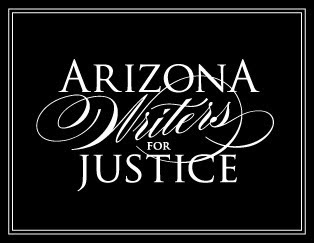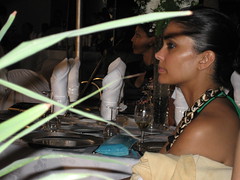
After Tunisia - Writers Respond

AWP Conference 2011

| Empire Ballroom | F204. African American Writers on Obama. (Lita Hooper, Renee Simms, Tara Betts, Antoinette Brim, Demetrice Worley) 44 on 44: Forty-Four African American Writers on the 44th President of the United States is an anthology of poetry, essay, and creative nonfiction based on the election of the first African American president of the U.S. The anthology includes contributors’ reflections of the historic election of Barack Obama. Several contributors will read from the anthology and engage in a discussion with one another and the audience. |
| Virginia C Room | S180. [WITS Alliance]—We Were All Poets in the 3rd Grade: What Happened? (Jack McBride, Janine Joseph, Mary Rechner, Renee Simms, Giuseppe Taurino, Jeanine Walker) WITS Writers will discuss their paths as writers and teachers, from when they fell in love with writing, how they were discouraged or made to feel anxious about the process, and how they subsequently came back to it. Investigating why K-12 students go from a willingness to engage creative writing (and all it entails: vulnerability, creativity, risk) to being afraid or indifferent, panelists will explore best teaching practices for re-engaging students and collaborating with classroom teachers. |
Books, Books and an Interview
Michelle Obama's Dress
Rewriting the Draft (four years later?!?)
Battle Hymn of the Tiger Mother

This memoir about Eastern versus Western parenting strategies has been getting a ton of publicity. The smartest response I've read is over at Buddhafun (and not just because I love Stephanie Han and her writing, though I do.)
Here's a snippet of what Stephanie had to say:
it depends what you want from your kids and how you see the world. Is your priority to make them economically successful and have them achieve social status? Then her methods might not be so bad.Check out the rest of the blog essay here
Will it yield children who are good spouses, community oriented, or who might meander down another more unique path in life? Nah. Not necessarily. Depends. Maybe if they meet other ballbusting types who tow the social line of good behavior. Yeah, then it can work out. But let's be frank--Margaret Mead is not born of this stuff, neither actually is someone like Baryshinkov, or hey, let's name him--Einstein. (That said, how many children actually become those types of figures? Not many...) Actually, what is yielded from Chua's method, I hate to say it, but let's be frank--is a kind of bourgeois mediocrity within a certain socioeconomic group. Good schools. Good extracurrics, the right holidays and camps, the right understanding of good wine and an opera. But this does not necessarily yield the kid that stands up for the weaker ones, the person who stands by the environment, votes for his community, and has the guts to do the right thing, simply to do the right thing.
{look for title at the end of post}
Arizona Writers for Justice
 On Monday, January 17th, I will join a group of writers to read poems, essays and stories that speak to the true legacy of Martin Luther King, Jr. There is a range of writers and styles involved and the readings promise to be funny, inspired, and just plain good. The writers are:
On Monday, January 17th, I will join a group of writers to read poems, essays and stories that speak to the true legacy of Martin Luther King, Jr. There is a range of writers and styles involved and the readings promise to be funny, inspired, and just plain good. The writers are: